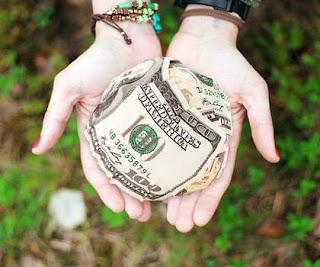Teaching children about money is so much more than simple mathematics skills yet it’s something that’s essential for life.
Your child is never too young to start learning about the role of money and how it’s used. The good news is that there are unlimited opportunities to help your child learn about fiscal matters without sitting down in front of a calculator.
Here are some fun ways you can educate your child about money with different activities for each age range.
Toddlers
At this age, it’s almost impossible to teach a true understanding of money but even young toddlers can start to learn the basic concepts.
Good money skills involved delayed gratification; in other words, not spending all your money at once! This is one of the hardest things for a child to accept but you can start teaching it young, using sweets instead of real money.
Have a large jar of sweets filled to the top, and at regular intervals allow your child to just have one or two. This provides the lesson that even when there is a lot available, you can’t use it all up at once.
School age - Key Stage 1
When children move on to school, they will have a burgeoning idea of the value for money and how it works. This may only be in the loosest possible terms but understanding that you need to have money to buy things is the first step.
Playing pretend games such as “shop” can be really helpful for children to start appreciating the value of money, and how the different coins and notes are worth different amounts.
Age 8-12 - Key Stage 2
As children advance through their schooling, their math skills will improve which in turn will make it easier for them to understand how money works.
However, by this age it’s not just about the role money plays in society, it’s time to start introducing more practical money management skills.
At a very basic level this is as simple as receiving pocket money each week. Some parents insist that their child saves some of the cash while others leave it up to the child to decide. Whatever approach you opt for, you can help your child to learn by showing them what they could buy if they saved up, and how to enjoy little treats without blowing the lot.
Teens
From age 13 onwards, children really benefit from being exposed to more decisions about how to use the available money, and how to budget.
Practical experience is what’s needed to cement these skills and you can provide this by giving your child some responsibility. Take them around the shop and show them how to compare products to look for the best deals.
As they grow older you can take this further by including household bills. A good way to start is mobile phone contracts as it’s something that many teens are interested in. Look at the deals available and shop around to find the best offer.
As you prepare your child for college and university, you can sit down with them and help to figure out a budget for their cash. By this age you need to allow them to have responsibility for making some of their own decisions, but you can still support them by making sure they’ve factored in all necessary costs.
Valuable life lesson
Teaching children about money is something which should start from an early age and continue to evolve throughout their lives. A subject that’s often skipped past in school, practical money management and budgeting are essential for healthy finances and it’s never too soon to start learning.
ABOUT THE AUTHOR
Emily Dick has recently graduated with an Honors Degree from the Open University in the field of social science. She currently writes for StarWalkKids, where she enjoys writing about a range of topics such as parenting tips and advice and reviewing the latest toys and games for children. Emily is currently raising her two year old daughter, and two pet cats.


No comments:
Post a Comment